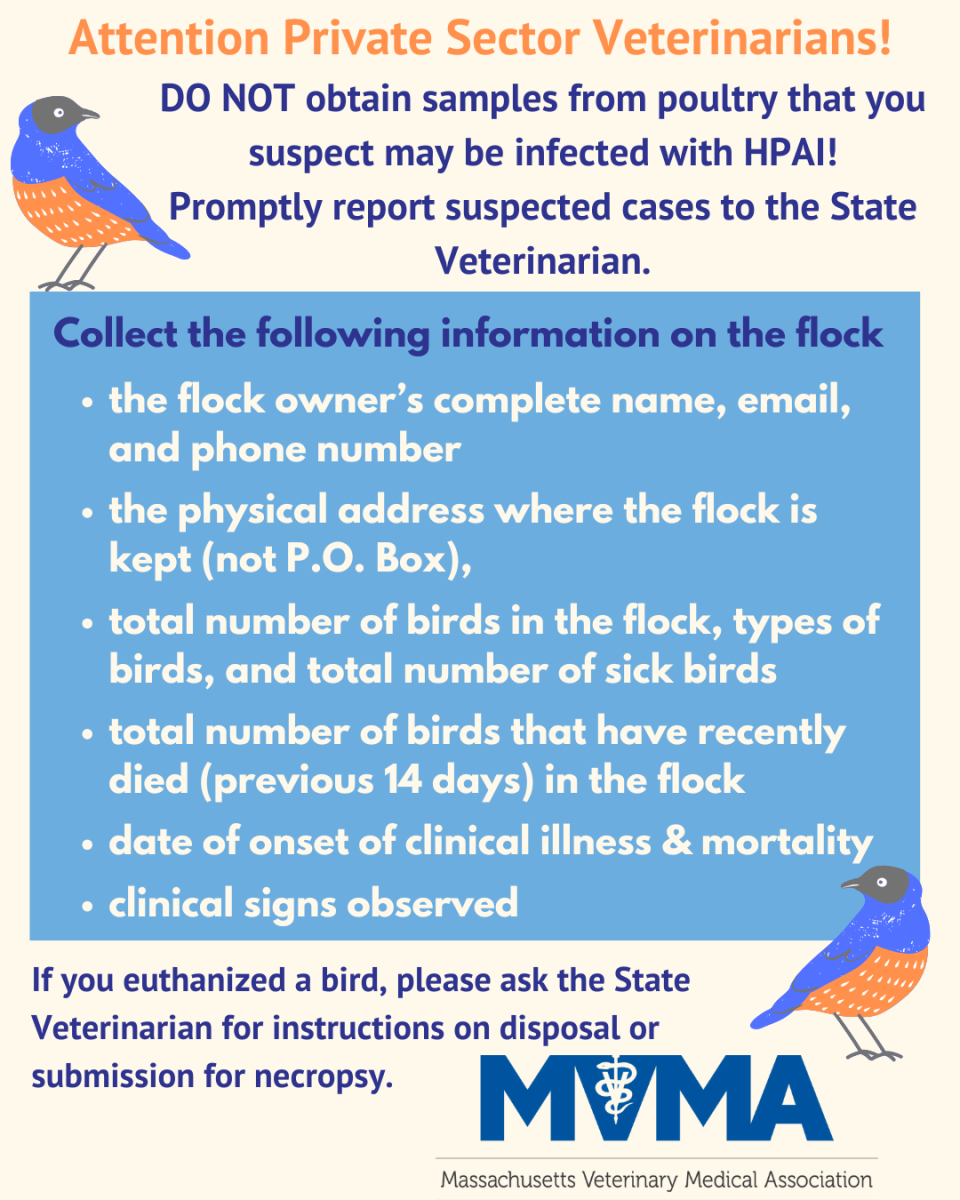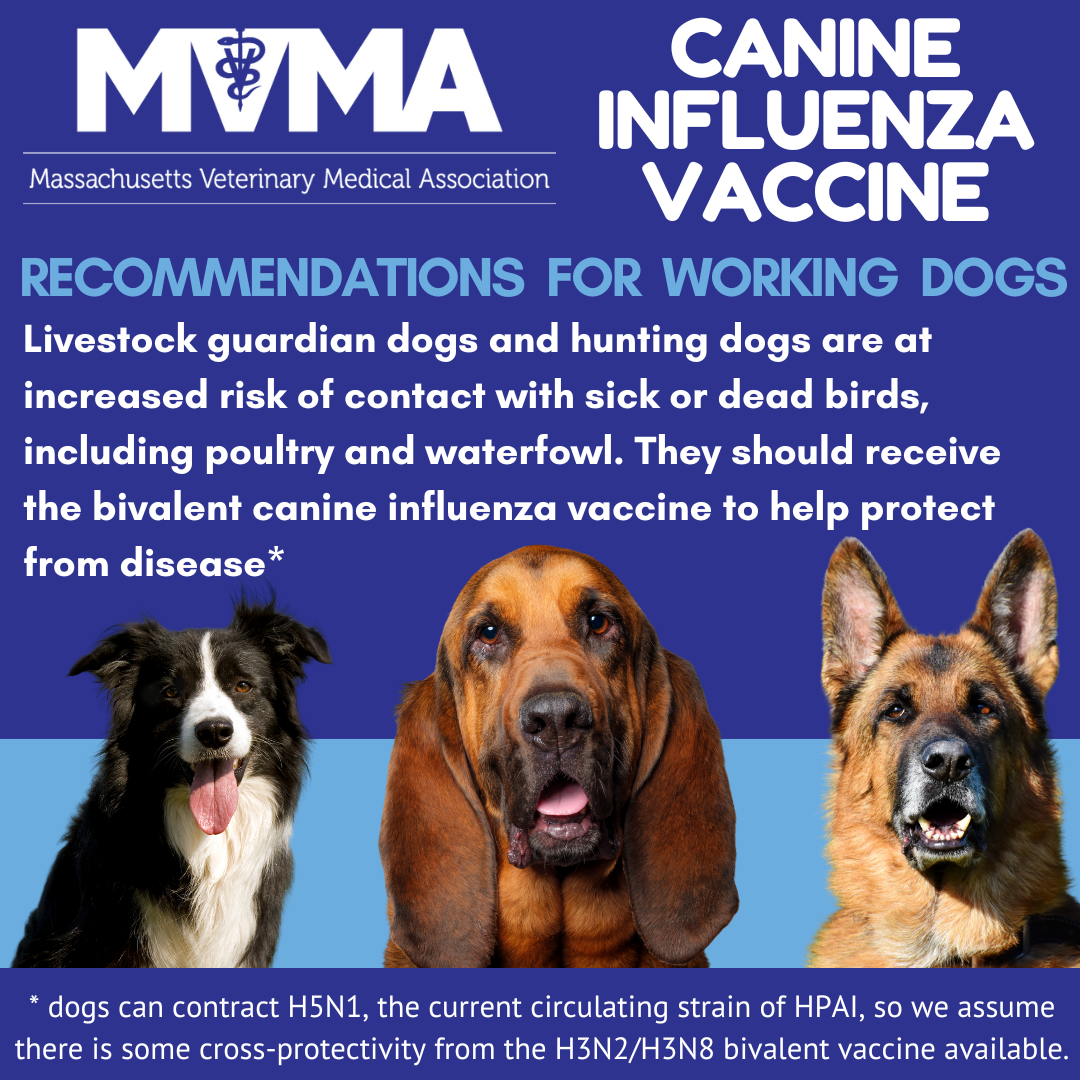HPAI Resources
 Highly Pathogenic Avian Influenza (HPAI), also known as “bird flu,” is a highly contagious viral disease of wild and domestic birds. The current outbreak began in late March 2024 with the detection of H5N1, a subtype of the influenza A virus, in dairy cows. H5 bird flu is spreading worldwide in wild birds and causing sporadic outbreaks in U.S. poultry and dairy farms. In addition to spreading to an increasing number of various mammal species, H5 bird flu has caused some rare human infections. The current public health risk is low, and there have been zero reported cases to human-to-human spread in the U.S.
Highly Pathogenic Avian Influenza (HPAI), also known as “bird flu,” is a highly contagious viral disease of wild and domestic birds. The current outbreak began in late March 2024 with the detection of H5N1, a subtype of the influenza A virus, in dairy cows. H5 bird flu is spreading worldwide in wild birds and causing sporadic outbreaks in U.S. poultry and dairy farms. In addition to spreading to an increasing number of various mammal species, H5 bird flu has caused some rare human infections. The current public health risk is low, and there have been zero reported cases to human-to-human spread in the U.S.
Source: The CDC National Situation Summary
Below, you will find a list of local and national resources and articles that cover major developments in the presence of the virus, prevention and safety considerations for pets and people, recent research, and more.
Massachusetts Resources & News
New England States Animal Agricultural Security Alliance Avian Influenza Guidelines
Massachusetts Department of Agricultural Resources (MDAR) Avian Flu Page
USA Today Report - Bird Flu Widespread in MA (2025 January)MVMA Social Media Posts for Clients
Feel free to share our posts on Facebook and Instagram or print them out to show at your clinic!
Canine Influenza Vaccine to (Possibly) Protect Working Dogs (March 2025)
Private Practice Vet Recommendations from State Veterinarians (February 2025)
Pets
Cats and dogs may become infected if they eat sick or dead infected birds, drink unpasteurized milk from infected cows, or eat undercooked or raw meat. Cats are particularly susceptible to severe illness and death caused by the virus. The likelihood of dogs catching avian influenza is very low.
AVMA – Avian Influenza in Cats
AVMA – Avian Influenza in Dogs, Cats, and Backyard Flocks
American Kennel Club – Bird Flu And Dogs
All Current FDA Pet Food Recalls
Bird Flu and Cats, Cathy Lund, DVM
Study: Antibodies to Influenza A(H5N1) Virus in Hunting Dogs Retrieving Wild Fowl
Highly Pathogenic Avian Influenza A(H5N1) Virus Infection of Indoor Domestic Cats Within Dairy Industry Worker Households
12/27/24 Article: Keep Your Cats Safe from Avian Flu
12/24/24 Northwest Naturals Cat Food Recall Due to Avian Flu
Dairy & Poultry
Avian influenza is widespread in commercial and backyard flocks, with millions of birds affected. Unlike poultry, which experience high mortality rates from avian influenza, cattle generally recover from the virus.
AVMA – Avian Influenza in Dairy Cattle
Study: Three Bovine Veterinarians Unknowingly Infected with H5N1
FDA: Pasteurization of Milk Inactivates H5N1
Daily Updates: Map of Confirmed Avian Influenza Cases in Livestock
Research, General Prevention, and Vaccines
USDA Detections of Highly Pathogenic Avian Influenza
AVMA General Information and Veterinary Resources
Highly Pathogenic Avian Influenza (Bird Flu) Resource Center – Cornell University
1/8/25 USDA to Build Stockpile of Bird Flu Vaccine for Poultry
2/2/25 Egg Farmers Warm to Idea of Vaccinating Birds
2/18/25 French Bird Flu Vaccine Campaign Helps Poultry Industry Recover
1/8/25 USDA to Build Stockpile of Bird Flu Vaccine for Poultry
2/2/25 Egg Farmers Warm to Idea of Vaccinating Birds
1/8/25 USDA to Build Stockpile of Bird Flu Vaccine for Poultry

The MVMA Advisory Board met in March 2025 and the topic of the canine influenza vaccine came up related to avian flu.
We know dogs can get H5N1, the circulating strain of HPAI. But the bivalent canine influenza vaccine is for H3 strains, so we are assuming some cross-protection based on human seasonal influenza studies. We know that direct contact with sick or dead birds is a high risk factor for transmission, so we are assuming that livestock guardian and birding dogs are more likely to have this exposure. So there are assumptions to the advice to vaccinate working dogs with a related strain of influenza vaccine.
